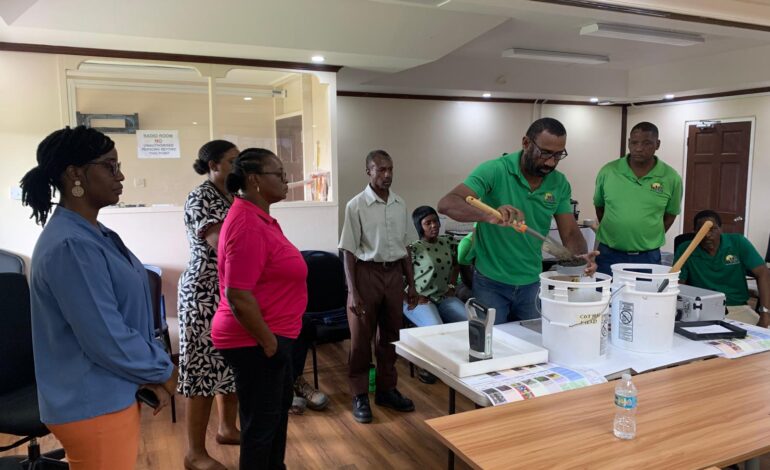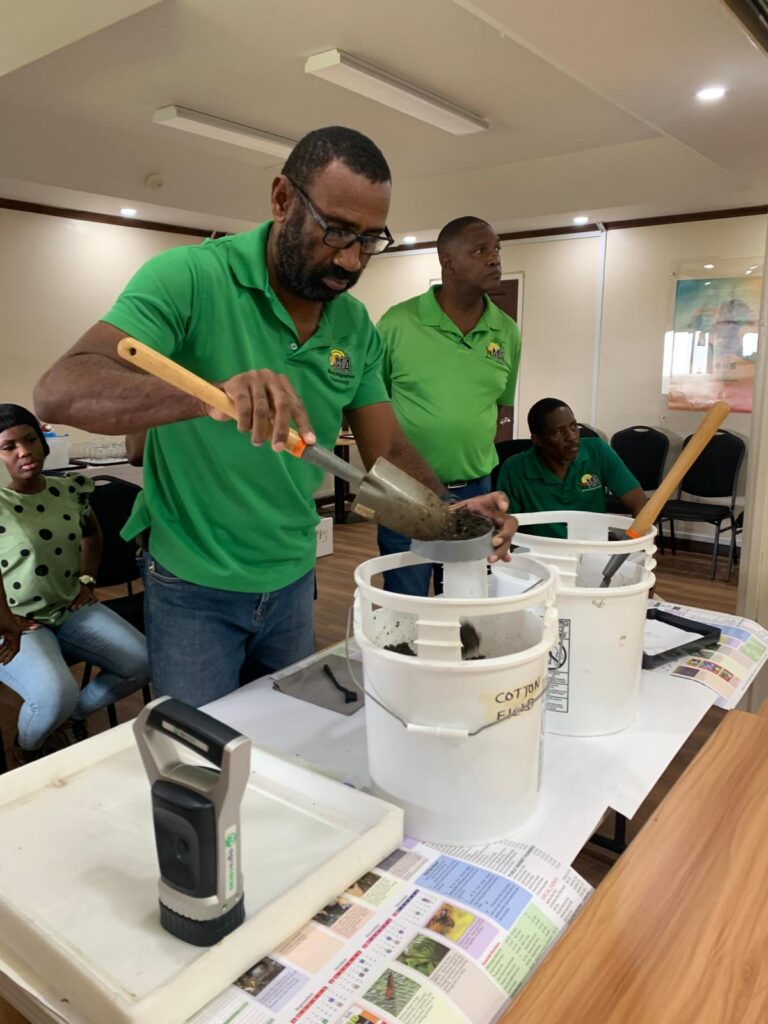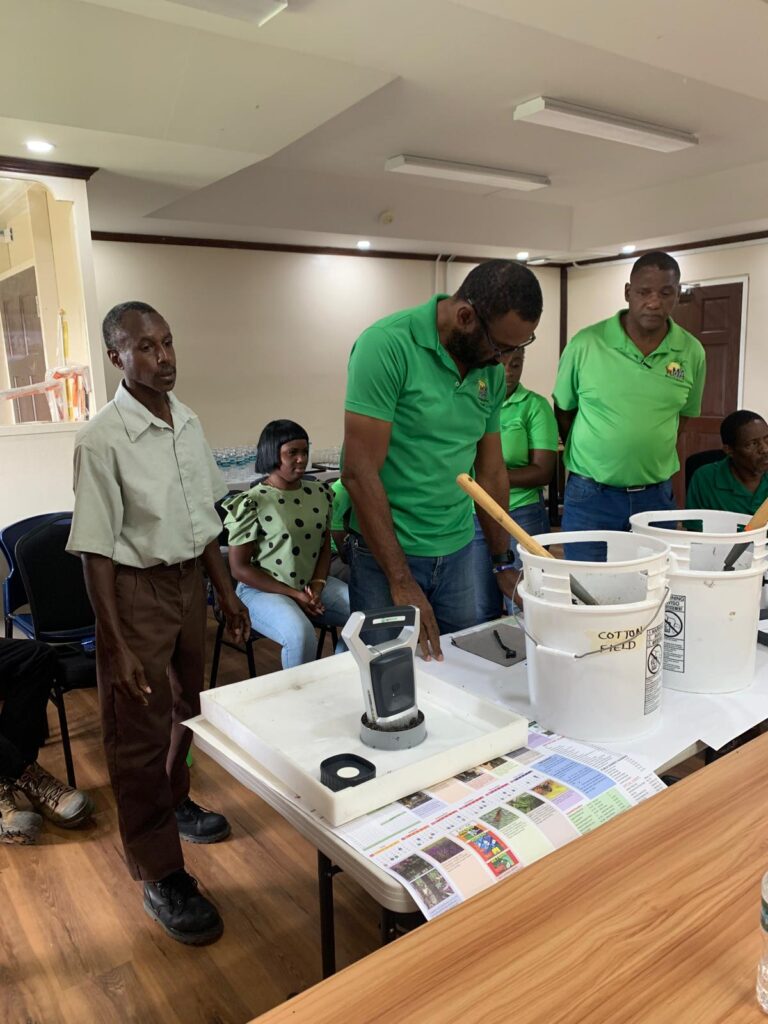
February 11, 2025. Bridgetown, Barbados. The Food and Agriculture Organization of the United Nations (FAO) is excited to announce the introduction of digital soil scanners to the agricultural community in Barbados. This innovative technology aims to empower stakeholders such as extension officers, and farmers by providing them with essential tools to assess soil health and optimize nutrient management.
In Barbados, the use of digital tools in agriculture is still relatively uncommon. Many farmers struggle with proper guidelines and lack effective information systems to make informed decisions regarding the timing, quantity, and type of inputs necessary for promoting plant growth and managing pests and diseases. Consequently, farmers often apply agricultural inputs incorrectly, leading to decreased yield potential, elevated production costs, and increased risks of agrochemical residues in crops.
Recognizing these challenges, FAO’s training program sponsored by the People’s Republic of China through the Community of Latin American and Caribbean States (CELAC) focused on introducing digital tools. The first segment of the project consisted of drone training and the delivery of drones to equip extension officers with the capacity to map farming areas. This project is also being supported by TCP/ BAR/ 4001 “Enhancing agricultural production through more precise and efficient digital crop management systems”.
The second segment of the project focused mainly on equipping ministry officials and extension officers from the Barbados Agricultural Development Corporation (BADMC) with hands-on experience in utilizing portable digital soil scanners. These scanners generate detailed reports with data that allows for the calculation of fertilizer quantities required which enables extension officers to provide tailored recommendations to the farmers, allowing farmers to adjust their fertilization practices to the specific needs of their fields.
This approach not only enhances crop productivity but also minimizes waste mitigates environmental impacts associated with excessive fertilizer use and benefits situations where farmers may not be giving adequate amounts of fertilizer. “Soil nutrient management is a critical component of sustainable agriculture and will greatly assist us with monitoring agricultural areas,” said Tiana Hurley a participant of the training, and extension officer with the Barbados Agricultural Development Marketing Corporation. By introducing digital soil scanners, the FAO aims to strengthen the capacity of the Ministry of Agriculture and the BADMC and provide them with the necessary knowledge and tools to make data-driven decisions that enhance their agricultural practices and improve their livelihoods.
The training sessions covered practical knowledge on how to effectively use the scanners to provide real-time data on the soil nutrient levels for macronutrients such as nitrogen, potassium, and phosphorus, secondary nutrients such as calcium and magnesium and organic matter, pH, and cation exchange capacity (CEC) and other parameters and to interpret the data generated. Participants were exposed to a comprehensive understanding of their soil’s nutrient status, enabling them to take actionable steps toward improving soil health and agricultural productivity. The FAO is dedicated to promoting precision agriculture solutions that can be adapted to the unique needs of Barbadian farmers. The introduction of digital soil scanners is a significant step towards fostering a more sustainable and productive agricultural sector in Barbados.








